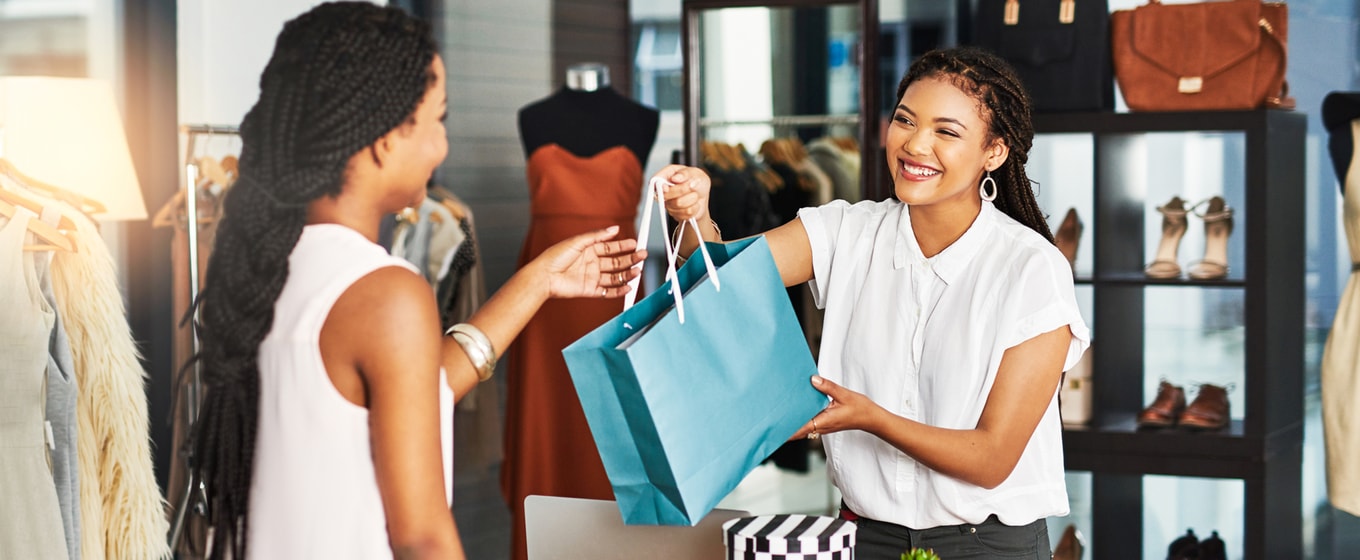In the ever-evolving world of retail, independent stores face unique challenges.
Big brands are capturing attention through surreal and advanced marketing tactics. For independent retailers, it can be hard to compete against well-known brands and the allure of luscious marketing campaigns.
And with shoppers' digital fatigue on the rise, how can indie retailers break through the noise and challenge traditional retail?
In this blog, we'll explore key strategies and trends to help independent retailers thrive in the competitive landscape.
Embrace authenticity and connect with your audience
In a world dominated by filters and staged authenticity, indie stores have a powerful advantage—the genuine human touch. Take a cue from successful brands like Victoria Beckham, Jacquemus, and Tods. Each uses their unique voice to connect with their audience.
Showcasing your "why"—the story behind your business, product, or service—can create a powerful bond with customers. When customers resonate with your purpose, they become loyal advocates who will spread the message organically.
For example, consider sharing behind-the-scenes glimpses of your production process or highlighting the artisans and craftsmen behind your products. By humanizing your brand, you create a connection that goes beyond transactional exchanges.
Ride the wave of conscious consumerism
Conscious consumerism is a significant retail trend that will continue to shape the industry in 2023.
Customers in both the US and the UK are re-evaluating their spending habits and considering the impact of their choices. Some are ready to indulge and prioritize socialising and personal well-being, while others focus on budget-conscious purchases.
To tap into this trend, consider enhancing the customer experience. Collaborate with like-minded brands that align with your audience's values. You could organize sustainability workshops or partner with local eco-friendly organizations to educate customers about responsible consumption.
Try highlighting your commitment to ethical practices and eco-friendly products. You not only attract conscious consumers but your brand will also be different enough from competitors to be interesting.
Tailor in-store experiences to delight customers
The modern consumer craves choice and a seamless blend of the physical and digital worlds.
Retailers should strike a balance between promoting the brands they stock and showcasing their own unique offerings. One notable example is Flannels' flagship store on Oxford Street. They transformed into a "non-salesy" space, hosting influencers and customers in a digital realm.
By providing unique experiences and leveraging social media buzz, retailers can captivate customers and drive them to their online shops.
Consider adding interactive displays, pop-up installations, or hosting live events. The buzz and excitement will allow customers to engage with your products in a memorable way.
Collaborate with local artists or influencers to generate social media traction. By blurring the lines between the digital and physical worlds, you create an immersive and captivating shopping experience.
The evolution of the high street
The high street has undergone a transformation, especially in the wake of the pandemic. While some units remain vacant, there is a reinvention happening as brands adapt to changing consumer demands.
Personal interaction remains crucial, and the rise of experience-led pop-ups signifies a shift towards more immersive retail experiences. Technology plays a vital role in supporting these innovations, ensuring a seamless and engaging customer journey.
For independent retailers, this means a real shift away from traditional retail in physical stores.
Try adding augmented reality (AR) or virtual reality (VR) experiences within your store. These technologies can transport customers to different environments, allowing them to visualize products or engage in interactive experiences.
If you're a small business, it's unlikely that you'll be able to afford a custom virtual reality or augmented reality app for your business, but you can capitalise on other augmented reality apps. In 2016, Pokemon Go, an augmented reality game that forced users to walk around to different locations, became all the hype. Retailers and high street stores held Pokemon Go events for users, increasing foot traffic into their businesses. Pokemon Go's hype died away - but we can all learn from the experience. Keep searching the Google Play or Apple App store for new and trending VR and AR apps and see how you can use them for events in your high street store.
Alternatively, you could hold an event and invite social media influencers to your store. Many micro-influencers with accounts under 10k followers are very accessible and are more likely to engage with your brand. This can help blend the physical and digital worlds together, giving your shop the hype it needs.
In addition, exploring partnerships with complementary businesses can be hugely beneficial. By partnering with other businesses, you can create curated shopping experiences or events held across multiple stores. What could be more inviting to shoppers than a range of products and services under one roof?
Staying competitive through innovation
To stay ahead of the competition, independent retailers must offer something new, interesting, and trending. Price alone is not the sole factor driving consumer interest.
By being creative, capturing shoppers' attention, and providing added value, retailers can stand out from others in the market. Think outside the box and find unique ways to catch customers' eyes, whether through innovative products, exceptional service, or memorable experiences.
Additionally, invest in staff training to provide exceptional customer service and personalised recommendations. This helps to create a memorable shopping experience that keeps customers coming back.
Responsive social media marketing
Maintaining solid communication channels is crucial for building a strong brand. Establish an online strategy and a social media plan that allows customers to connect with your story.
Customers don't just buy products; they invest in the story behind them. Vary your types of content and let your user base get to know you and your brand.
Make the most of popular social media platforms, responding to comments and inquiries promptly. A rule of thumb could be to reply within three hours to every comment. If you receive messages through a messaging app like Facebook Messenger, try to reply instantly. This helps keep your engagement rate up and shows your target audience that you are a responsive business.
Consider leveraging user-generated content by encouraging customers to share their experiences with your products or store. For example, get them to take photos of themselves with a selfie mirror in-store or a branded hashtag. This fosters a sense of community and encourages brand advocacy.
If this sounds like a lot to handle, investing in a social media manager might be a worthwhile step.
Finding success in the retail space
As an independent retailer, you have the power to challenge traditional retail and succeed amidst changing trends.
Embrace authenticity, tap into conscious consumerism, curate exceptional in-store experiences, and stay responsive to your customers' needs.
Offer something unique. Add value beyond the product. Innovate in-store experiences to surprise your customers. All of these methods can help you stand out from the competition and create a thriving business.
Remember, the retail landscape may change. But with the right strategies and a passion for your craft, you can navigate the challenges and find success.
About the author
Wizz Selvey is a thought leader and a go-to industry name for market insights and advice in the retail industry. Previously Head of Buying at Selfridges, and Director at Cowshed Beauty and Soho Home, Wizz is now the founder of WIZZ&CO, a strategy agency specialising in retail, consumer trends and brand-building.








These cookies are set by a range of social media services that we have added to the site to enable you to share our content with your friends and networks. They are capable of tracking your browser across other sites and building up a profile of your interests. This may impact the content and messages you see on other websites you visit.
If you do not allow these cookies you may not be able to use or see these sharing tools.